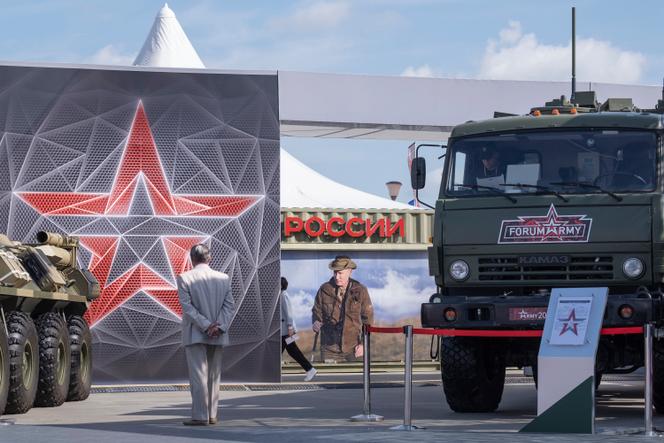


If anyone needed confirmation on the Kremlin's intention to prepare for a long war, the working sessions around the Russian Federation's 2024 budget provide it: Moscow is amping up its financial means to do so. The drafted figures unveiled on Friday, September 22 by the Bloomberg news agency, were not denied by Putin's government: Next year, the Russian defense budget is intended to reach 10.8 trillion rubles (€107 billion), or 6% of gross domestic product (GDP).
The nearly 70% increase is staggering: In 2023, defense spending on a war budget was 6.4 trillion rubles (€63 billion) – or 3.9% of Russia's GDP. In 2021, military spending was equivalent to 2.7% of GDP.
For comparison, the US defense budget for 2024 is expected to be $842 billion (€795 billion), 3.2% more than the previous year.
For the first time in its history, Russia is preparing to spend more on defense than on social policy (7.5 trillion rubles or €74 billion), a very broad budget item that includes pensions, journalist Farida Rustamova noted. This result is all the more incongruous in an election year – a presidential election is scheduled for March 2024 – that's traditionally associated with major social spending.
Another new development is the amount allocated to classified spending for unspecified purposes: It has almost doubled to 11.1 trillion rubles (€110 billion), 30% of the budget. Part of this expenditure is earmarked for the "special military operation" in Ukraine, but above all, it enables the government to operate in secrecy. The exceptionally high bonuses paid to the families of Russian soldiers killed (5 million rubles, €49,585), for example, come from this line item of the budget.
Various sources have indeed observed increased recourse to this secret fund since the beginning of 2023: In August, Reuters estimated that military spending for the first six months of the year had already exceeded the total military budget for this year.
The other lesson to be learned from the draft budget unveiled by Bloomberg is that Russia is looking to the future with optimism. Despite the cost of war, and in particular the cost of sanctions, Moscow expects its budget to be 22% higher than in 2023, and its deficit to fall to 0.9% of GDP.
These forecasts are largely based on expected growth in oil and gas revenues, which the Russian authorities expect to rise by almost a quarter to 11.5 trillion rubles (€114 billion).
Conversely, the government seems to be expecting no further revenue from the departure of foreign firms (various types of "taxes" that companies wishing to sell their businesses in Russia have to pay). These departures will bring in 114.5 billion rubles (€1.14 billion) in 2023, but only 2.1 billion rubles (€20.9 million) in 2024.
You have 4.51% of this article left to read. The rest is for subscribers only.
